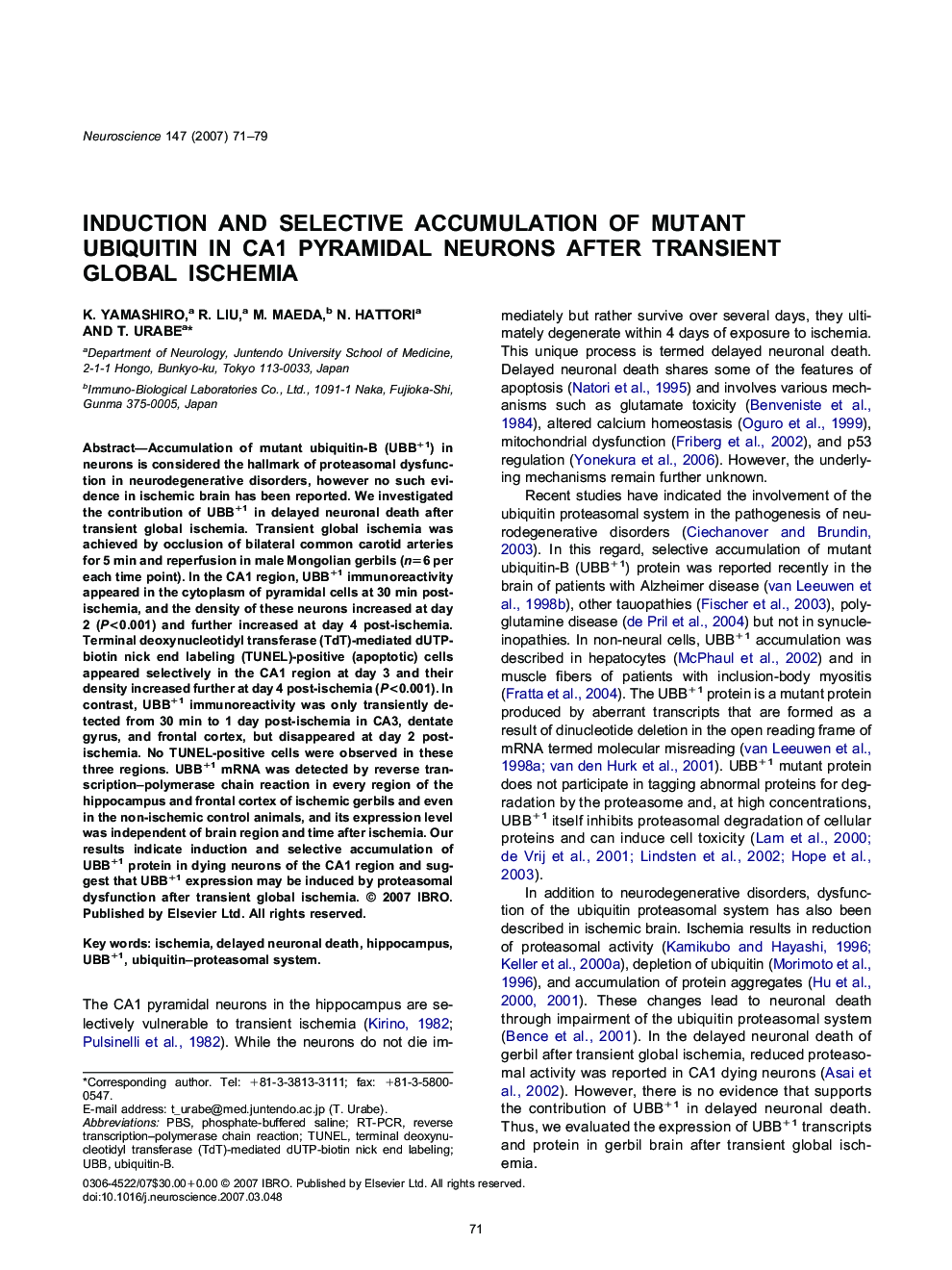| Article ID | Journal | Published Year | Pages | File Type |
|---|---|---|---|---|
| 4341708 | Neuroscience | 2007 | 9 Pages |
Abstract
Accumulation of mutant ubiquitin-B (UBB+1) in neurons is considered the hallmark of proteasomal dysfunction in neurodegenerative disorders, however no such evidence in ischemic brain has been reported. We investigated the contribution of UBB+1 in delayed neuronal death after transient global ischemia. Transient global ischemia was achieved by occlusion of bilateral common carotid arteries for 5 min and reperfusion in male Mongolian gerbils (n=6 per each time point). In the CA1 region, UBB+1 immunoreactivity appeared in the cytoplasm of pyramidal cells at 30 min post-ischemia, and the density of these neurons increased at day 2 (P<0.001) and further increased at day 4 post-ischemia. Terminal deoxynucleotidyl transferase (TdT)-mediated dUTP-biotin nick end labeling (TUNEL)-positive (apoptotic) cells appeared selectively in the CA1 region at day 3 and their density increased further at day 4 post-ischemia (P<0.001). In contrast, UBB+1 immunoreactivity was only transiently detected from 30 min to 1 day post-ischemia in CA3, dentate gyrus, and frontal cortex, but disappeared at day 2 post-ischemia. No TUNEL-positive cells were observed in these three regions. UBB+1 mRNA was detected by reverse transcription-polymerase chain reaction in every region of the hippocampus and frontal cortex of ischemic gerbils and even in the non-ischemic control animals, and its expression level was independent of brain region and time after ischemia. Our results indicate induction and selective accumulation of UBB+1 protein in dying neurons of the CA1 region and suggest that UBB+1 expression may be induced by proteasomal dysfunction after transient global ischemia.
Keywords
Related Topics
Life Sciences
Neuroscience
Neuroscience (General)
Authors
K. Yamashiro, R. Liu, M. Maeda, N. Hattori, T. Urabe,
